Founded by “a team of six with a larger concern for society” (alumni of Azim Premji University”/Montesorri””)”, the Gubbachi Learning Community works to bridge the learning competencies of children of migrant labourers in Bangalore.
By Nigar
I must confess I wasn’t ever half as excited about setting off to school when I was a child as I was on visiting the Gubbachi Learning Community on a sunny morning recently, along with a friend! It is tucked away in “Kodathi”, a peri-urban pocket in South-East Bangalore. The area has high levels of construction activity and is dotted with many migrant labour communities.
As you step inside the Gubbachi Learning Centre, located near the Kodathi Government School, the first feeling you get is of fun and freedom for the children. There is a vast open space, “plenty of “shrubs, “wild grass, “many trees with birds chirping around and the blue sky up above you, unhindered by any tall buildings! The centre, housed in a” little building, has brought love and learning into the lives of many children of migrant construction workers and their families.
Chirpy Enthusiastic Team
Gubbachi Learning Community is a bridge school founded by “a team of six “who had completed their Masters in Education, Development or Women Studies and were” aiming to translate their learnings into practice by working with”in” Government schools. Their interest in education and a larger concern for society brought together Joseph Deyone Jacobi,” Manimakalai Raja”, “Nomita Sikand, Preethy Rao Patel”, Rizwan Ahmed,” and” “Somya Suri.”” This chirpy enthusiastic team reminded me of the “spirit of the “five Enid Blyton kids who embark on an adventure to solve a mystery on Treasure Island!” “
It is estimated that there are around one lakh out-of-school children in Bangalore. A major portion of this population is children of migrant labour.
“In October 2015, six of us got together to start our first bridge learning centre at the Kodathi Government School, off Sarjapur Road. “With “our learning of what constitutes inclusive education and why it is important; and our experience from practise”, we were eager to hit the ground. “We felt that this mix of experience, framework and “commitment”, would help us work through challenges as we moved along. “ With an MOU with the Karnataka Education Department, we admitted “51 children and their younger siblings from neighbouring construction sites”all ‘out of school’ at the time,” says Somya. These children are, typically, first generation learners.
Multitude of Reasons
“At Gubbachi, the first question we had was why are children out of school? And during the survey, before we started our centre, we realized that out of a multitude of reasons, there were these three reasons which were immediate in the child’s experience. Firstly, children need to stay back at home to take care of their younger siblings. Secondly, “negative experiences during previous schooling stint. Thirdly, fear of parents of their children getting abducted on the way to school,” Somya continues.
“As an intervention, we had to address these issues in order to bring children to the centre. The first step was to start a preschool centre, for the younger siblings of the school going children, adjacent to the main class room so that older children are at peace to engage in learning,” say Nomita and Preethy.
Teaching Methods of Alternate Schools
“The curriculum at Gubbachi is designed to evolve, and strives at keeping the child’s interest, psychology and cultural background as priority. Best practices of the Nali-Kali curriculum” “(“multi-grade-multi-level classroom (or ungraded), learning paced for the child, and following a trajectory of learning), followed by government schools;” and teaching methods of alternate schools are adopted and improvised to suit the requirement of these children. Also, a lot of thought goes into understanding the psychology of the children, given the troubled and deprived background they come from.
The core guiding principle of Gubbachi (every child is unique and is valued) makes this process of evolving the curriculum continuous. Gubbachi has a programme for children when they join the centre. It has mainly three parts: expressing oneself, introduction to numeracy and building vocabulary and phonemic awareness.
Children are given opportunities to communicate with adults and peers around them in a non-threatening way. For example, they are asked to sketch whatever they like for an hour. Once done with their sketching, they sit in a circle and share what they have drawn with the facilitator and peers. Not judging the children for the drawing gives them a feeling of being accepted as they are, their expressions”, explains Joseph Deyone Jacobi on the Gubbachi blog.
Identifying out-of-school children of migrant labourers and enrolling them in Gubbachi required detailed fieldwork, reflects Rizwan. Today, “another 110 children study in two Gub”b”achi learning centres, gaining access to skills such as Kannada, Maths and English in a fun-filled, caring environment and “are “being prepared for hopefully joining regular schools after a while.
‘Gubbachi’ means sparrow in Kannada, and truly every kid in the Gubbachi Learning Community is a precious sparrow! Visiting Gubbachi can be a great experience for you, just as it was for me! There’s much wisdom you can gain from the kids! You might even find yourself climbing trees with them, plucking tamarind”” off the branches or flying colourful kites! You can learn a lot from the children and staff at the centre, a place of great joy, as I discovered the other day!
(Please see this beautiful video on the Gubbachi Learning Community: https://youtu.be/rm4y4_1awdc)
Website: https:// gubbachilearningcommunity.org/
Facebook: https://www. facebook.com/Gubbachi- Learning-Community- 1246046055409068/
Email: [email protected]
Postal Address: “Gubbachi – Bridge Learning Centre , GHPS-Kodathi, Kodathi-Sulikunte Road, Kodathi, Off Sarjapur Road, Bengaluru. Contact: Somya +91 99160 44543 / Rizwan +91 98454 55357.

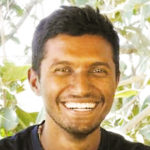
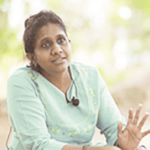


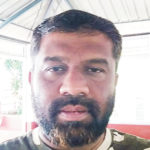
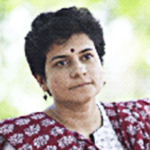
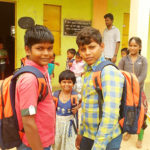
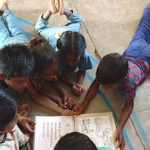
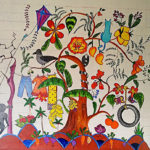
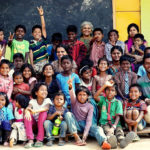
COMMENTS